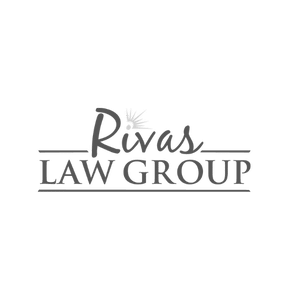Custom Law Firm Website Design
Turn website visitors in to clients.
Custom Web Design for Lawyers
When it comes to designing a law firm website, the stakes are high. As a law firm, your website is the face of your practice online. It represents your brand, expertise, and professionalism to potential clients. Your firm’s online presence should not only resonate with your brand’s core values but also stand out in a digital landscape packed with competition. The right custom law firm website design can help you stand out in a crowded market and attract more clients.
At Thunderhead Marketing, we have honed our craft over the past 14 years, ensuring that our clients not only make a strong impression but also foster meaningful connections with their potential clients.
Our Custom Lawyer Website Design Projects Include:

Custom Website Design or Re-Design & Development

Legal Blog Design, Integration and Management

Content Management System (CMS) for Website (WordPress)

Content Writing

On Page SEO

Contact and Inquiry Forms

Copyright (You Own the Website!)
What Is the Difference Between a Custom Attorney Website Design, a Template, and a DIY Website Builder?
In the realm of website design, three primary approaches dominate the landscape: custom websites, template websites, and DIY website builders. All have their merits and can cater to different needs and budgets. Understanding the distinctions between them can aid in making an informed decision for your law firm.
Custom Websites
Custom websites are meticulously crafted digital platforms tailored specifically for a business or organization. Developed from scratch, they’re the epitome of originality, flexibility, and scalability, catering specifically to the intricate needs of a law firm.
PROS
CONS
Template Websites
Template websites leverage pre-designed structures that users can modify to suit their brand. Ideal for those who seek a balance between uniqueness and cost-effectiveness, these templates are commonly built on platforms like WordPress.
PROS
CONS
DIY Website Builders
Platforms like Wix, Squarespace, and Weebly allow individuals to create websites using drag-and-drop tools. These builders empower those without technical backgrounds to design and launch their sites with ease.
PROS
CONS
The decision of which approach to take should reflect your firm’s goals, budget, and technical capability. Whether you desire a high degree of personalization with custom websites, a balanced approach with template sites, or a hands-on method with DIY builders, there’s an option suited for every law firm’s unique needs.
Our Custom Law Firm
Website Design Process
In today’s digital world, a professional website is crucial for law firms to establish their online presence and enhance credibility. A well-built custom law firm website design not only helps potential clients find and learn about your firm but also provides a platform to showcase your expertise and services. It allows for easy communication with clients and provides valuable information.
At Thunderhead Marketing, we have developed a 6-step method in order to streamline our custom attorney website design process and give our clients an idea of what the process entails. All of our clients receive a dedicated project manager to provide one-on-one support and ensure your satisfaction all while keeping the project on track.
01.
Discovery
This is where we get into an in depth discussion with the client and talk about what the goal of their website is. We discuss what expectations and objectives they have for their site and what they would like their site to convey about their business.
02.
Analyze Site Structure
For a new site, we will be coming up with the site structure and the navigation. The goal in this step is to ensure that we come up with a structure that can be easily navigated by the prospective customer and that can be easily crawled by the search engine spiders. For a site redesign, we will analyze the existing structure and make suggestions that will improve usability while keeping the existing pages intact.
03.
Design
Our talented designers will craft the look and feel of the site, including mockups of the home page, interior practice area pages, attorney bio pages, and a blog page. We will continue the revision process until everyone is happy with the layout and color scheme.
04.
Development
Once you have approved the design, we start the development of the website using our standard search engine friendly and cross-browser compatible coding – CSS/HTML. During this phase, we will integrate your site into a CMS if it is in the scope of work.
05.
Final Review, Testing, and Training
This is where we dot the i’s and cross the t’s for the site. We will test the site in all browsers and check all links and forms to make sure they are rendering properly. This is also where we will do the training for any back-end tools like a CMS or payment gateway.
06.
Launch!
Once we are given the approval to go live, we will give you the site files and upload the site to your hosting server. We will provide 90 days of email and phone support after your site goes live.
How To Build A Search Engine Friendly Website That Keeps Clients in Mind
We design and develop attorney websites using CSS/XHTML. In short, we use code that makes it easy for search engines to find the pages on your site and read all of the content, a key element in having your website rank high in search engines. We look at the site structure and ensure the navigation and link structure is search engine and client friendly.
Converting Website Visitors into Clients
What’s the point of having a beautiful custom law firm website design if prospective clients can’t find the information they need on your practice areas? We build highly functional sites that enable prospective clients to quickly and easily do two things: find the legal information they are looking for and keep your contact information in plain sight at all times.
Most people researching law firms will come to a site looking for particular services. Give them the information they want and show that you are an expert in your field. Our content management systems make it easy to update your site with the information prospective clients are looking for.
Why Mobile Responsive Design Is Critical
Mobile traffic trends continue to rise each year as more and more people access the web through their smartphones and tablets. Google’s revenue from its mobile advertising continues to grow and just about every client we work with has a healthy amount of traffic coming to their sites through mobile devices. But what does the data say?
In addition to the fact that mobile traffic is increasing, there is a continually growing list of screen sizes that your website needs to be ready to show up on. Desktop PCs, laptops, smartphones, tablets and smart TV’s all have displays that come in a variety of dimensions. An attorney website design needs to respond to the user’s choice in which device to visit your site on. You want to give them the best experience possible so they don’t leave your firm’s website. Read about our Mobile Web Design Services here.
YEARS AS AN SEO FOCUSED AGENCY FOR LAW FIRMS
PAGE 1 GOOGLE RANKINGS DELIVERED
PAGES OF CONTENT WRITTEN FOR ATTORNEYS
LEAD CONVERSIONS FOR OUR CLIENTS
Mobile Responsive Design: Make Your Firm’s Website Easier To Use
A website has a lot more width to work with when being viewed from a desktop computer screen. But on a smartphone, your site will require lots of swiping, pinching and zooming if it doesn’t have a mobile-friendly design.
Your firm will see more calls, more form submissions and/or more email inquiries from mobile users because they won’t be leaving your website out of frustration.
Let’s take an example of a website being viewed from a smartphone:
- Think vertically. No more sidebars. Everything fits in one column to eliminate the need for pinching and zooming.
- Picture sizes adjust accordingly for easy viewing.
- The mobile version is a simplified version of the original site. Unnecessary buttons, pictures, text should be eliminated. Only keep what is most important to the user.
Google suggests having a responsive design for mobile traffic so the search engine spider’s have an easier time crawling the site and interpreting how your site’s content is structured. This will help them determine what your firm’s website has to offer mobile users.
What Our Clients Say
Trusted By Attorneys Nationwide
Ready to Grow Your Business?
Whether you have no website or a website that needs a boost in search engine rankings, WE CAN HELP!








